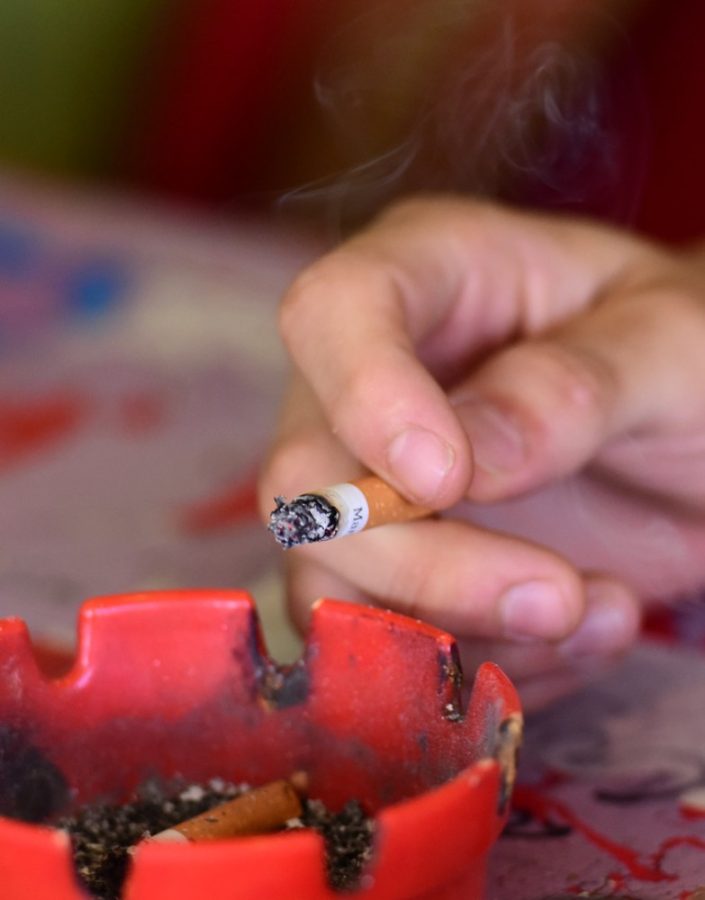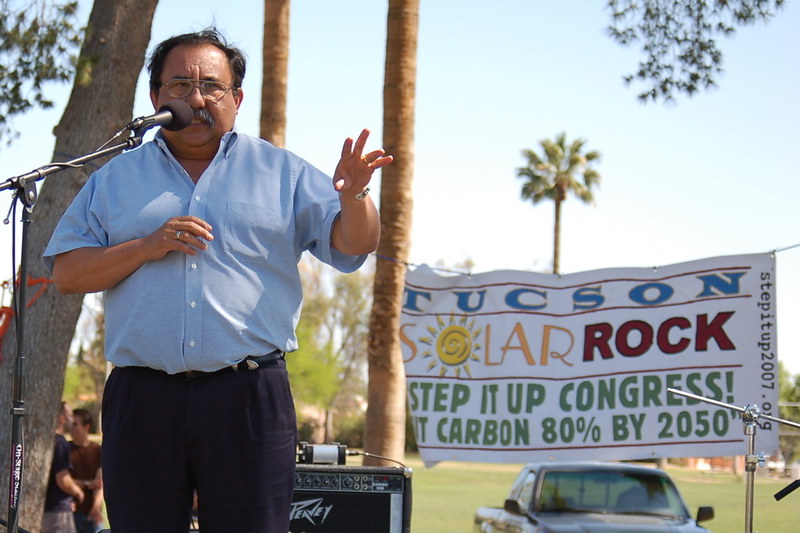Last year, the UA announced its decision to ban all tobacco products on campus. Effective Aug. 25, 2014, the use of tobacco products was prohibited on the UA campus.
“The University is dedicated to providing a healthy environment for those who participate in University activities,” the ban states. “In support of this goal, the University prohibits the use of products that contain tobacco or nicotine, including cigarettes, cigars, pipes, bidis, kreteks, hookahs, water pipes, and all forms of smokeless tobacco. Littering campus with remains of tobacco or smoking-related products also is prohibited.”
This ban is effective on all university property and vehicles. For smokers and tobacco users who attend the UA, August 2014 meant the end of the road of using on campus.
The only caveat to this ban is the exception of e-cigarettes, which are currently not prohibited, but are not permitted for use inside any building or within 25 feet of an entrance to a building—the same guidelines as the tobacco policy that was in place before the 2014 ban.
While restrictions for the ban are clearly defined, the enforcement of the policy is not.
“The way that [the tobacco ban] can be successful is actually to have members of the community hold each other accountable,” said Melissa Vito, senior vice president of Student Affairs and Enrollment Management. “It’s really a softer type of enforcement.”
The tobacco ban was enacted with the intention of promoting healthy behaviors rather than starting an anti-tobacco punishment program. The UA conferred with universities that have similar tobacco policies, and Arizona State University noted the softer enforcement has been effective.
“You don’t have your campus police out there with a fire hose putting somebody’s cigarette out,” Vito said. “That’s not the way you actually promote healthy behavior on campus.”
Sona Shahbazian, co-director of the Student Health Advocacy Committee said it’s not about punishing students.
Not everyone agrees with these relaxed consequences. Fahad Alenezi, a sophomore studying mechanical engineering, believes that the administration should stand stronger behind the ban.
“There aren’t any consequences,” Alenzi said. “The administration doesn’t care. Even though I’m a smoker I think there should be consequences. It’s bad for the environment and there could be people around with a [health] condition.”
Aaron Brussels, co-director of SHAC, echoed Vito’s points that the tobacco ban is intended to be a healthy behavior advocacy campaign rather than an enforced ban.
“It’s more about changing the culture about smoking on campus,” Brussels said. “With each incoming class we’re going to have a new cohort of students that come to the UA understanding that it is a smoke- and tobacco-free environment. Four years from the ban, we’re going to have almost an entire student body—at least undergraduate—that have known the UA as tobacco-free the entire time.”
There are possible changes in the future for the tobacco ban. Specifically, the ban will be more aggressively and widely advocated around campus. Signage in areas frequented by smokers will increase, and SHAC has reached out to various departments asking for the tobacco-free initiative to be included in their campus policies.
The exception of e-cigarettes from the policy is also being re-examined. E-cigarettes were originally exempt due to a lack of knowledge of their effects on health and a strong mix of opinions from students and experts who were both for and against including them in the ban. After more health-related information about e-cigarettes is published, their exemption will be revisited.
“If I look around campus, I rarely see people smoking,” Vito said. “Is it less than it was two or three years ago? I can’t really tell you that. We haven’t done any additional research to be able to quantifiably say, ‘Yes, I know it’s working.’ But I do know that you don’t see a lot of smoking on campus.”
According to Brussels, SHAC is in the process of compiling concrete data to determine the effectiveness of the ban.
For those interested in reading more about the tobacco ban or looking for resources regarding tobacco-safety, visit the university’s website at tobaccofree.arizona.edu.








